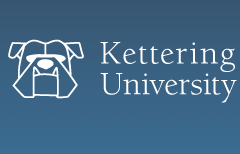Kettering University's Bioengineering Summer Program for High School Women
Document Type
Conference Proceeding
Publication Date
6-2004
Publication Title
Proceedings of the 2004 American Society for Engineering Education Annual Conference & Exposition
Conference Name
American Society for Engineering Education Annual Conference & Exposition
Abstract
It has been documented that young women are more likely to pursue a career that they perceive as contributing to the common good of society. Also, the number of young women that obtain degrees in science, technology, engineering, and math (STEM) is steadily decreasing or remaining stagnant. To address these two issues, Kettering University has developed a summer program that introduces high school women to bioengineering and the applications for Biomechanics, Ergonomics, Biochemistry, and Automotive Crash Safety. There are very few residential bioengineering summer programs nationwide. Kettering’s Lives Improve Through Engineering, or LITE, is a two week, residential, summer program for young women entering their senior year of high school. Approximately 36 students, recruited from throughout the United States and Canada, attend the fully funded camp each year. University female students receive a stipend to mentor the high school students. The student to mentor ratio is kept low, 3 to 1. Four different professors, one for each bioengineering subject, are dedicated to presenting the curriculum. Hands-on laboratory experiences are integral to the learning process. In some areas, students present project posters at the end of the two-week period. Overall, the students participate in an interactive curriculum that shows them firsthand how they can apply bioengineering to societal concerns. Benefits to the high school students are both perceived and measured. The students have a chance to interact with female professors who are balancing family and work, therefore showing first hand that women can achieve professional and personal aspirations. The undergraduates who serve as LITE mentors demonstrate collegiate success. Both faculty and coeds are positive role models for the high school women. A post-program assessment of the LITE participants indicates that after attending the two-week program, they are more likely to pursue degrees in STEM subjects. Data also indicates that the mentors, after participating in the program, are more confident of their mentoring skills and are more likely to seek out mentoring opportunities in the future.
Rights Statement
Copyright © 2004 American Society for Engineering Education
Recommended Citation
Brelin-Fornari, Janet; Homsher, Betsy; and Sullivan, Laura L., "Kettering University's Bioengineering Summer Program for High School Women" (2004). Mechanical Engineering Presentations And Conference Materials. 62.
https://digitalcommons.kettering.edu/mech_eng_conference/62


Comments
ISSN: 2153-5965